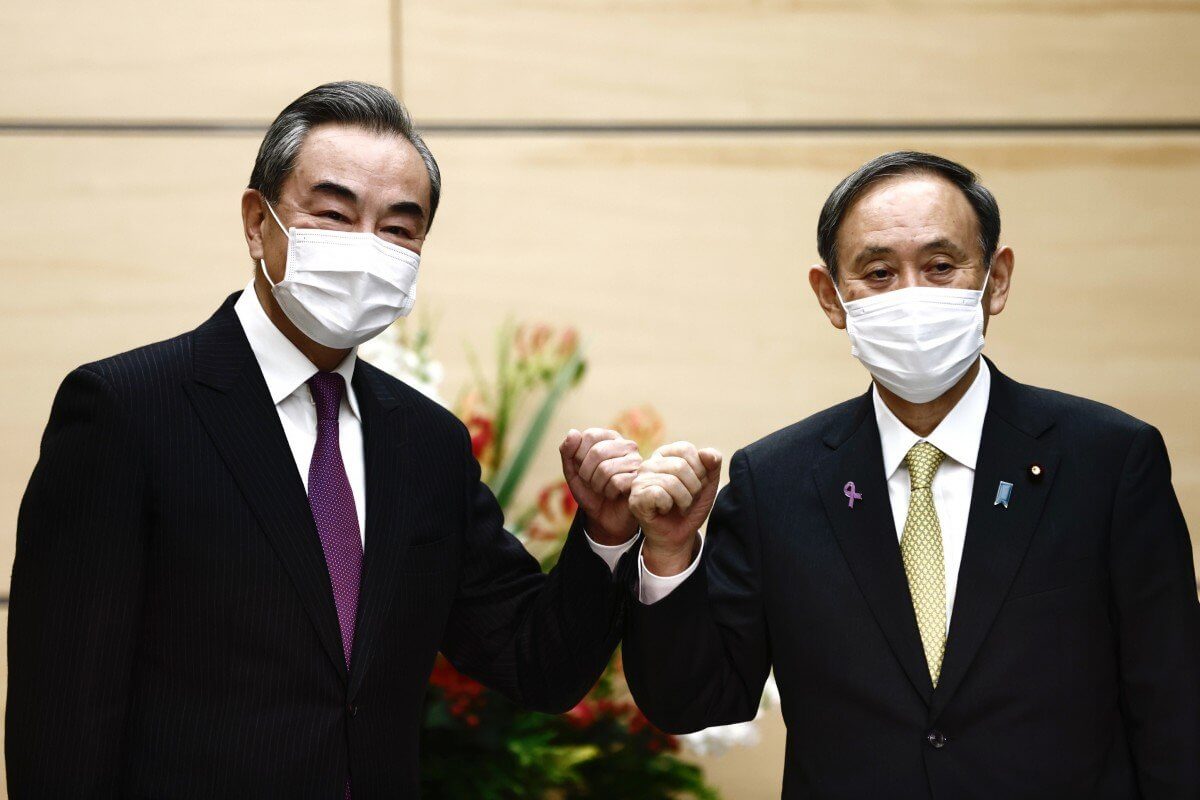Chinese State Councilor and Foreign Minister Wang Yi met the newly elected Japanese Prime Minister (PM), Yoshihide Suga yesterday, on his two-day trip to Japan. This was Beijing’s first high-level meeting with Japan since the departure of former PM Shinzo Abe wherein the leaders discussed enhancing their bilateral relationship.
PM Suga, who took office in September, has so far been cautious of taking a harsh anti-China stance and stressed that stable ties with China were important to Japanese interests. In the brief meeting, PM Suga expressed that the stability of relations between the two countries was “important not only for Japan and China but also for the region and the international community”.
Interestingly, however, the Japanese PM chose Indonesia and Vietnam—both of which have long-standing unresolved territorial disputes with China—as his first international visit. Moreover, just ten days ago, PM Suga hosted Australian Prime Minister Scott Morrison, a country whose recent relations with China have witnessed friction over trade, to sign a defence pact. Therefore, although Japan seeks stable relations with China it is simultaneously hedging its bets and building its alliances to realize its vision of a free and rules-based Indo-Pacific.
According to the China Daily, Wang said that “China-Japan relations have returned to the right track and both sides should cherish the hard-won situation”. The countries also discussed strengthening their relationship so that it “will meet the requirements of the new era”. Wang also pushed for the need to mutually extend regional cooperation in terms of economic recovery from the pandemic, accelerate the building of the free trade zone, reform global governance, make globalization more inclusive, and combine efforts to build a better future for Asia. PM Suga in return requested Beijing to take “positive action” on their maritime dispute in the South China Sea and raised concern over the situation in Hong Kong since Beijing’s imposition of the restrictive and controversial national security law.
This meeting comes amidst rising tensions in the neighbourhood due to Beijing’s consistently aggressive actions in the East and the South China Sea while Japan has been actively participating in signing military and economic partnership agreements in the Indo-Pacific region to counter China’s dominance. Japan and China are embroiled in a territorial dispute over an island chain that is known as Senkakus in Japan and as the Diaoyus in China; the islands are located about 1,931 kilometres southwest of Tokyo, and has been administered by Japan since 1972. However, China asserts that the islands are an “inherent part” of Chinese territory, saying that its claims to the isles date back hundreds of years. China has regularly deployed its vessels to waters near the islands.
During his visit to Japan, Wang also held talks with Japanese Foreign Minister Toshimitsu Motegi, wherein the two agreed to resume two-way business travel and to try not to escalate tensions over the disputed Senkaku/Diaoyu islands. He also met with Chief Cabinet Secretary Katsunobu Kato to further discuss concerns over regional dominance. Further, the Chinese official also took the opportunity to meet former Japanese Prime Minister Yasuo Fukuda and the Secretary-General of the Liberal Democratic Party, Toshihiro Nikai.
Furthering China’s goals of regional cooperation against the backdrop of a fraying relationship with the United States, Wang is set to represent Beijing in Seoul today to forward a three-way free trade deal with Japan and South Korea. He is also scheduled to meet with South Korean President Moon Jae-in.
China Holds First High-Level Talks With New Japan PM Suga
Chinese foreign minister Wang Yi met with the newly appointed Japanese Prime Minister, Yoshihide Suga, to discuss how to stabilise fraying bilateral ties.
November 26, 2020

SOURCE: BLOOMBERG
